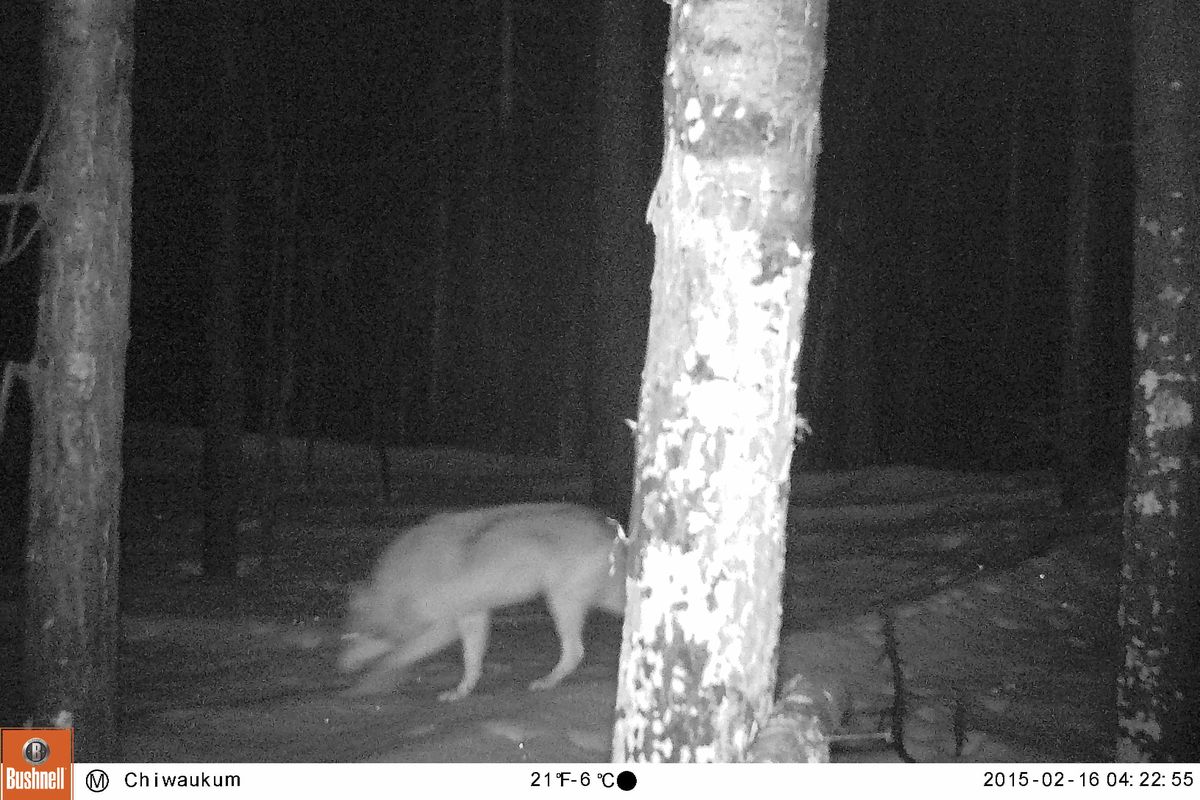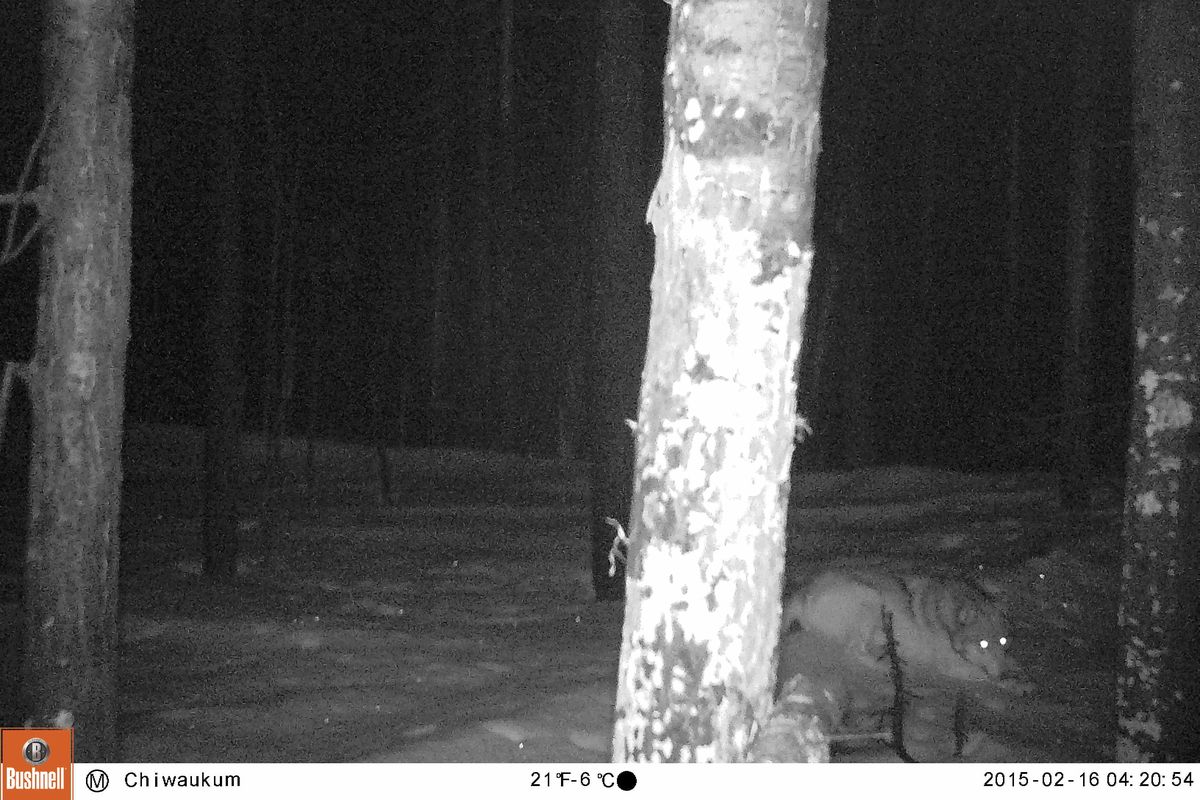Wolf documented between Leavenworth and Stevens Pass
A trail-cam monitored by Conservation Northwest snapped this photo on Feb. 16, 2015 of an animal later confirmed as a gray wolf by Washington Department of Fish and Wildlife biologists. The location, known as the Chiwaukum Range on the Okanogan-Wenatchee National Forest in the Cascade Mountains, is roughly 75 miles northeast of Seattle. The site is between Stevens Pass and Leavenworth, south of Highway 2. (Conservation Northwest)
ENDANGERED SPECIES -- A gray wolf was photographed in February by a trail cam between Leavenworth and Stevens Pass, state and federal biologists have confirmed.
The confirmation is another piece of mounting evidence that the wolves are advancing their recovery toward the West Side of the Cascades.
The gray wolf is still protected under state and/or federal endangered species laws in Washington. Wolves must establish a breeding presence in three regions of the state, including Western Washington, before they can be considered for delisting.
The February photos, released today, were captured by Conservation Northwest’s Citizen Wildlife Monitoring Project northwest of Leavenworth. The wolf in the photos is the first officially documented in the area since wolves began to recolonize Washington state in the late 2000s.
“This exciting discovery shows that wolves are continuing to naturally regain their historic range in the Pacific Northwest,” said Chase Gunnell, Conservation Northwest spokesman.
The photos underscore the importance of educating the public on the value of wolves for healthy wild ecosystems, gathering accurate data on impacts to big game and other wildlife species and furthering collaborative efforts that are to reduce conflicts between wolves, livestock and domestic animals in Washington, he said.
Biologists believe the animal is likely a dispersing wolf that traveled into or through the area.
An established wolf pack has not been confirmed in the area, although wolves have likely moved through the region previously to establish the Teanaway and Wenatchee packs to the south, Gunnell said.
While hikers, backpackers and others recreating in wolf country should take some sensible precautions just as they would around bears and other large wildlife, including properly storing food and keeping dogs on leash, wild wolves have posed little threat to humans in North America.
The Washington Department of Fish and Wildlife offers these tips regarding wolf-human interactions:
In the February photos the wolf near Leavenworth, a gray and white animal with a classic coat, is seen sniffing and lying in the snow at a camera station set out to capture photos of wolverines, another elusive carnivore making a comeback in the Cascades. Confirmed wolf tracks were also found within the same area.
The group's citizen-science monitoring program previously made headlines in 2008 by capturing photos of the first wolf pups born in Washington in about 80 years. The project has also photographed and documented scientific data on wolverines in Washington and Canada lynx in British Columbia.
The Citizen Wildlife Monitoring Project, led by Conservation Northwest in coordination with the Washington Department of Fish and Wildlife, the U.S. Fish and Wildlife Service, the U.S. Forest Service, Wilderness Awareness School and other partners, uses citizen-scientist volunteers to better inform conservation programs and priorities in the Pacific Northwest.
By training hikers, climbers, backcountry skiers, and other outdoor recreationists in tracking, wildlife biology and remote camera use, volunteers are able to support ongoing wildlife research efforts in the Cascades and the Kettle Range of northeast Washington and southeast British Columbia, the group says in a release.
Project efforts typically cover geographic areas outside those where professional research efforts are ongoing, adding to and strengthening the work of agencies, biologists, researchers and conservation organizations.
More information about the Citizen Wildlife Monitoring Project is available from Conservation Northwest online or in a video.
Photos and full scientific reports on each wildlife monitoring season are also available.


